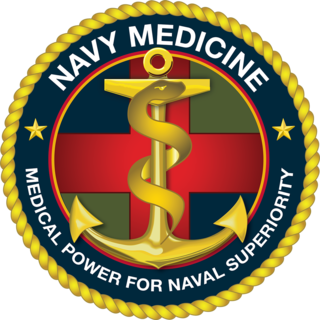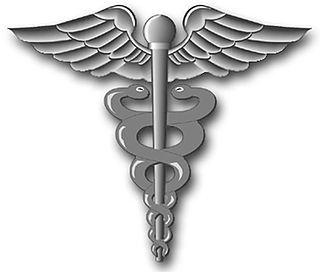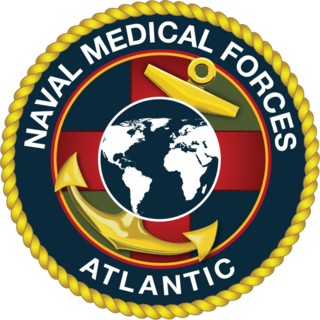 W
WThe Bureau of Medicine and Surgery (BUMED) is an agency of the United States Department of the Navy that manages health care activities for the United States Navy and United States Marine Corps. BUMED operates hospitals and other health care facilities as well as laboratories for biomedical research, and trains and manages the Navy's many staff corps related to medicine. Its headquarters is located at the Defense Health Headquarters in Fairfax County, Virginia. BUMED has 63,000 medical personnel and more than a million eligible beneficiaries.
 W
WThe severe acute respiratory syndrome coronavirus 2 (SARS-CoV-2), the cause of the COVID-19 pandemic, was detected on the aircraft carrier USS Theodore Roosevelt in March 2020 while she was at sea. Affected crew members were evacuated and the ship was ordered to Guam. The captain, Brett Crozier, wanted most of the crew to be removed from the ship to prevent the spread of the disease, but his superiors were reluctant. After several days Crozier e-mailed three of his superior officers and seven other Navy Captains, outlining a plan for the ship to be largely evacuated because the virus could not be contained on board. The letter leaked to the press, and the next day the Navy ordered most of the crew to be taken ashore, but the captain was relieved of command by Acting Secretary of the Navy Thomas Modly. Modly's order was controversial, and his later speech to the crew aboard Theodore Roosevelt was criticized. Modly resigned a few days later. By mid-April hundreds of crew members including Crozier had tested positive for the virus, and one had died.
 W
WA hospital corpsman is an enlisted medical specialist of the United States Navy, who may also serve in a U.S. Marine Corps unit. The corresponding rating within the United States Coast Guard is health services technician (HS).
 W
WNaval Medical Forces Atlantic was established August 2005 as Navy Medicine East and is a flag level command reporting directly to the Bureau of Medicine and Surgery. Naval Medical Forces Atlantic is responsible for administrative command over its subordinate commands, and for the provision of health and dental care within its area of responsibility. As of 2017, Navy Medicine East oversees over 100 medical facilities and a staff in excess of 26,000 in the eastern United States as well as overseas.
 W
WA special amphibious reconnaissance corpsman (SARC) is a United States Navy hospital corpsman who provides the Marine Special Operations reconnaissance teams and other USSOCOM units advanced trauma management associated with combatant diving and parachute entry. Traditionally, they are attached to the Marine Corps Force Reconnaissance companies to help support the Command Element of the Marine Air-Ground Task Force in special reconnaissance missions.
 W
WA special amphibious reconnaissance corpsman (SARC) is a United States Navy hospital corpsman who provides the Marine Special Operations reconnaissance teams and other USSOCOM units advanced trauma management associated with combatant diving and parachute entry. Traditionally, they are attached to the Marine Corps Force Reconnaissance companies to help support the Command Element of the Marine Air-Ground Task Force in special reconnaissance missions.
 W
WThe Surgeon General of the United States Navy is the most senior commissioned officer of the Medical Corps of the United States Navy, is currently a rear admiral, and is a member of the Office of the Chief of Naval Operations. The Surgeon General of the Navy is also the Chief of the Navy's Bureau of Medicine and Surgery (BUMED), which consists of ten departments. One department consists of four staff corps, including the Medical Corps, and an enlisted corps. The Chief of the Medical Corps is a rear admiral.